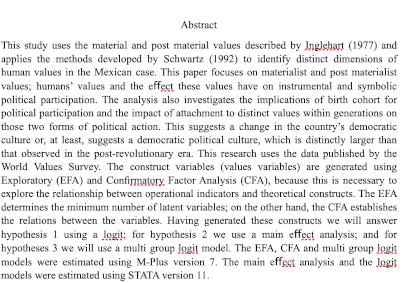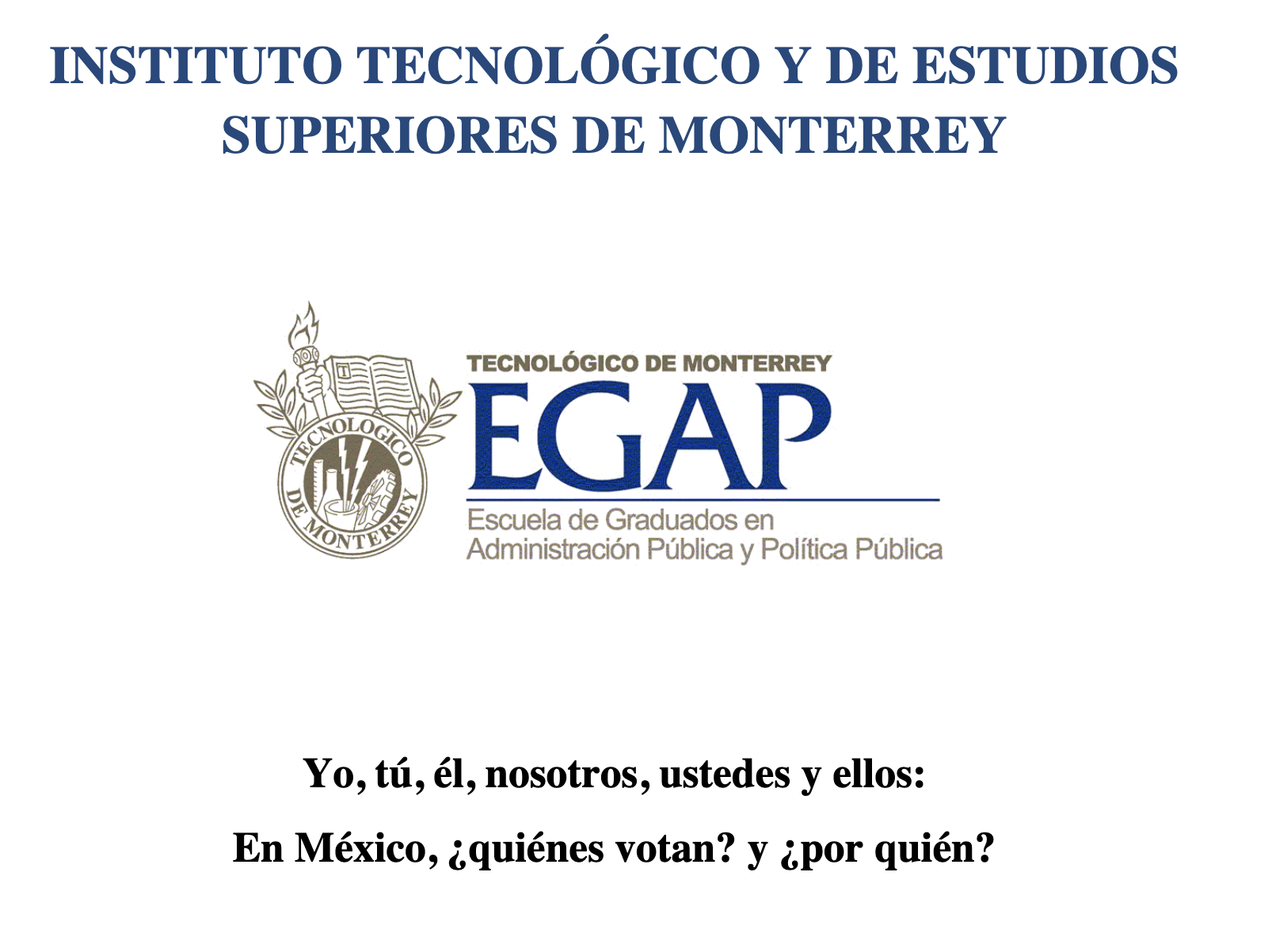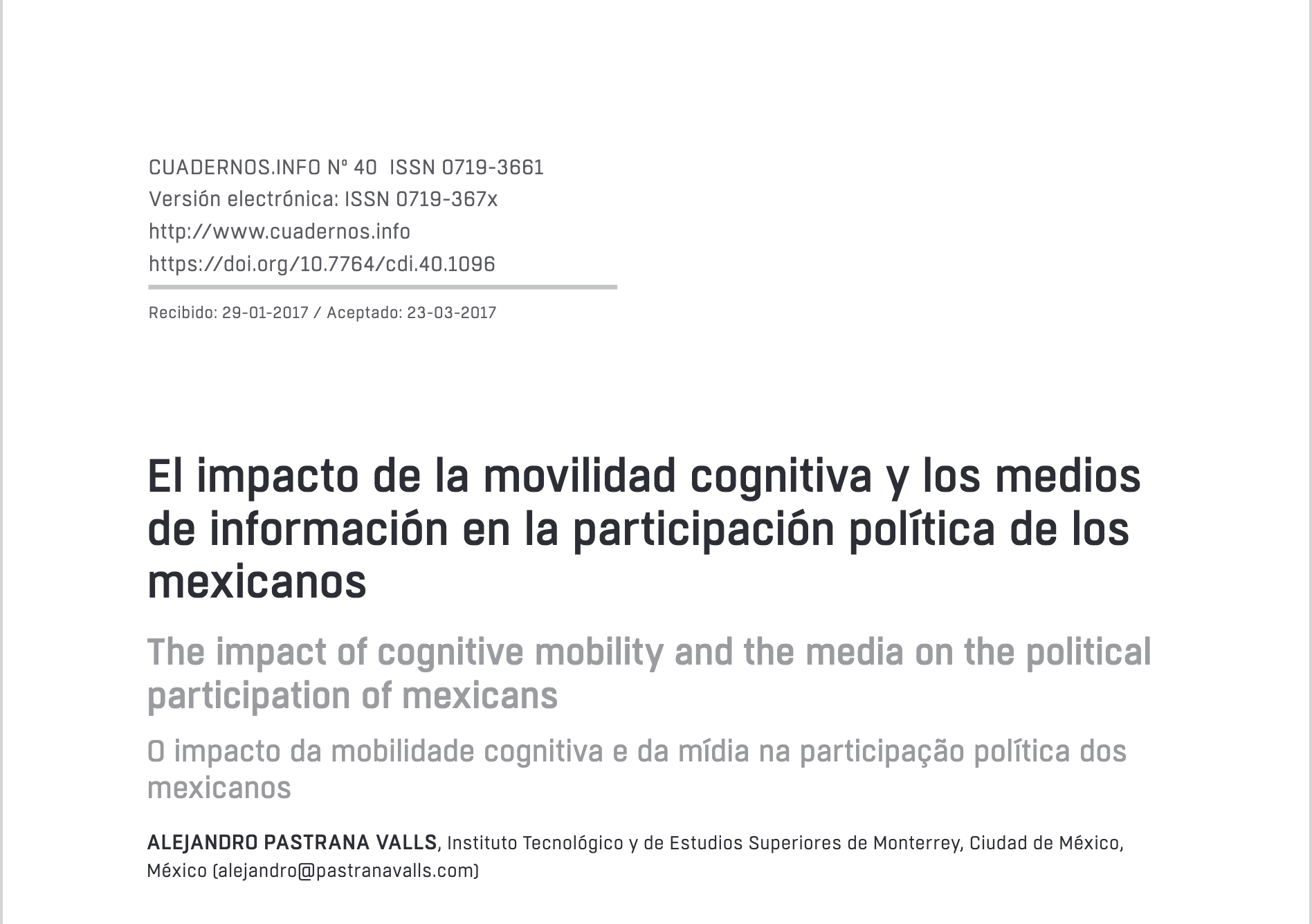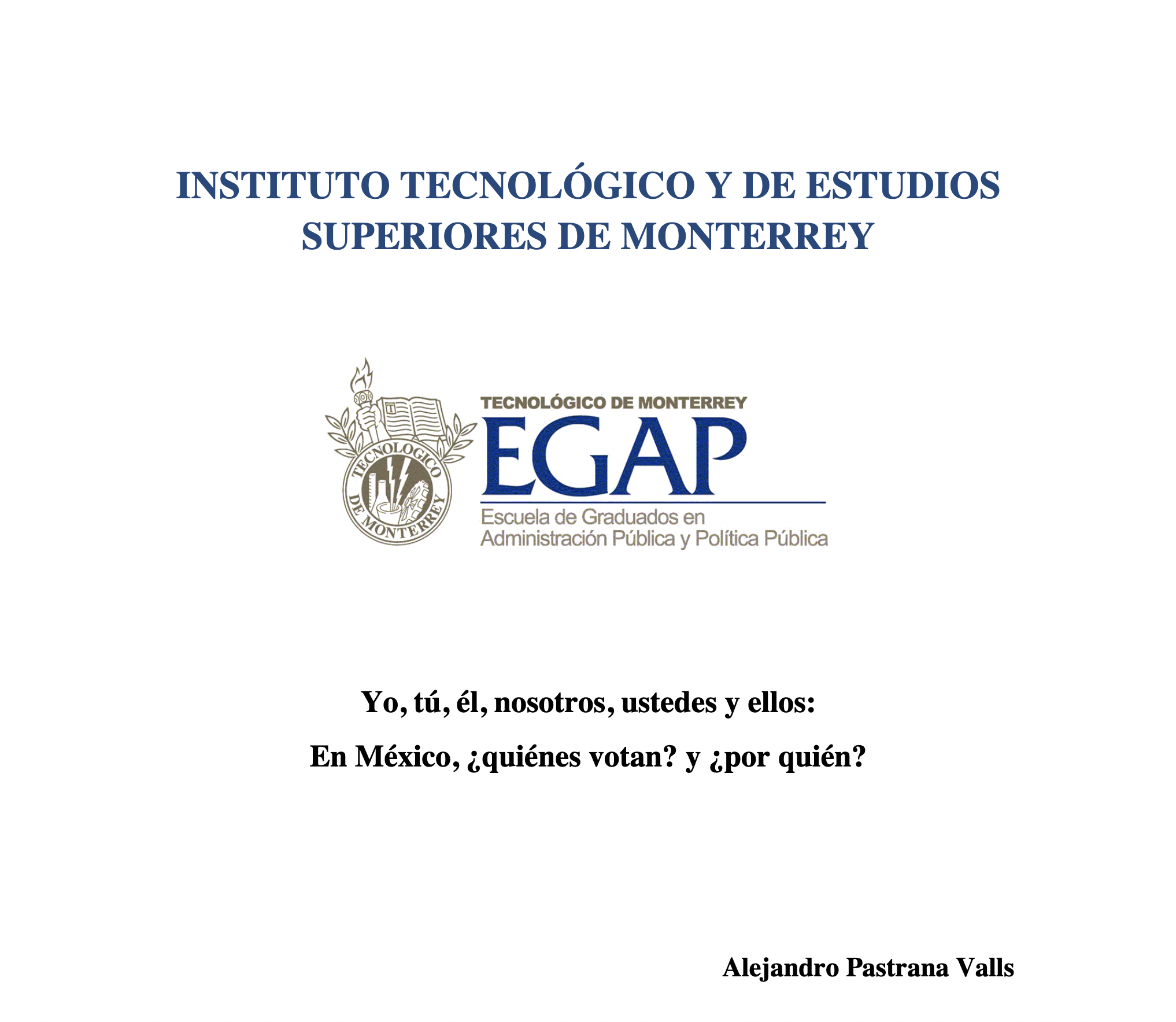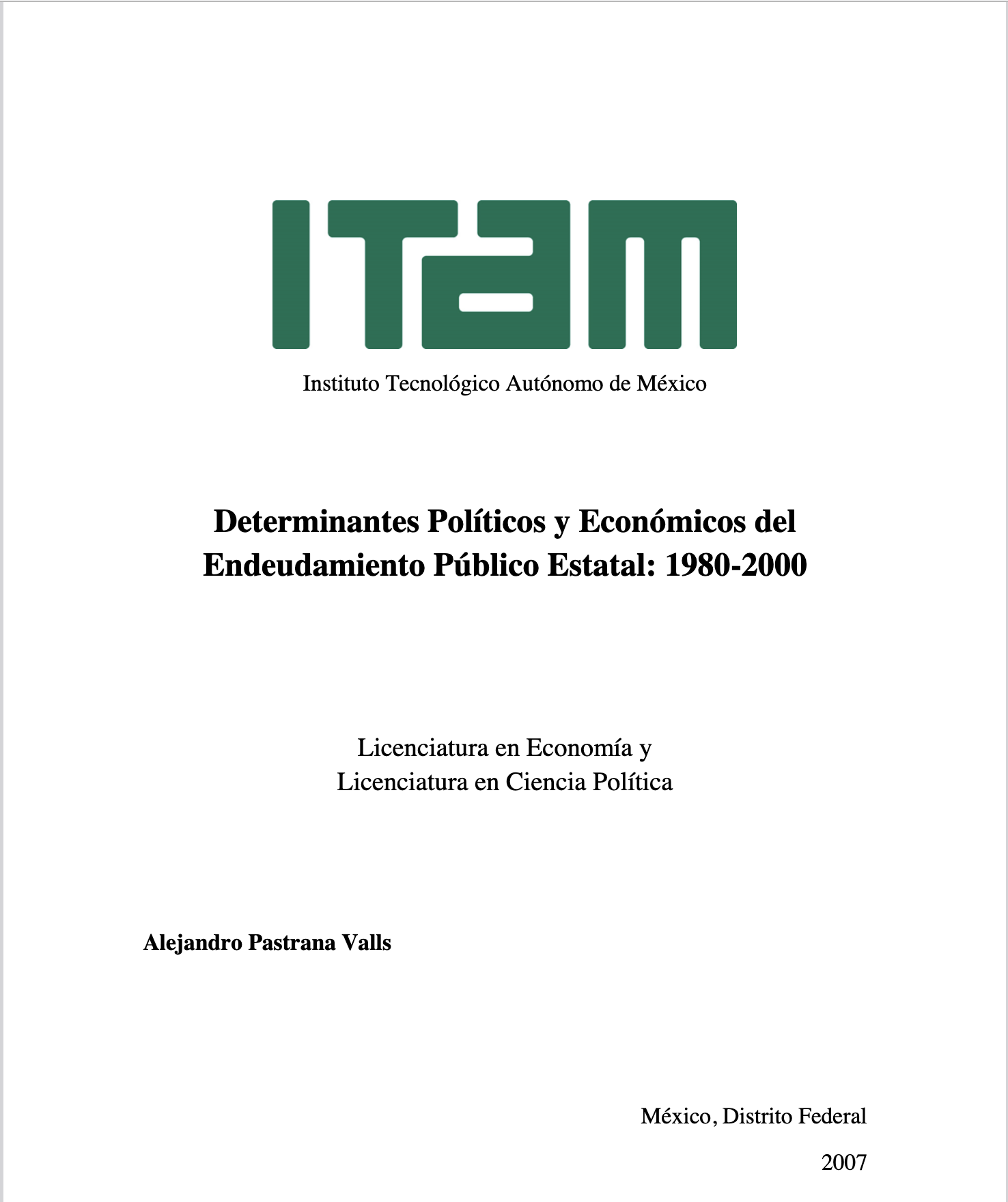Values; Attitudes and Political Participation in Mexico
Post Date:
DraftsValues; Attitudes and Political Participation in Mexico
This study uses the material and post material values described by Inglehart (1977) and applies the methods developed by Schwartz (1992) to identify distinct dimensions of human values in the Mexican case. This paper focuses on materialist and post materialist values; humans’ values and the effect these values have on instrumental and symbolic political participation. The analysis also investigates the implications of birth cohort for political participation and the impact of attachment to distinct values within generations on those two forms of political action. This suggests a change in the country’s democratic culture or, at least, suggests a democratic political culture, which is distinctly larger than that observed in the post-revolutionary era. This research uses the data published by the World Values Survey. The construct variables (values variables) are generated using Exploratory (EFA) and Confirmatory Factor Analysis (CFA), because this is necessary to explore the relationship between operational indicators and theoretical constructs. The EFA determines the minimum number of latent variables; on the other hand, the CFA establishes the relations between the variables. Having generated these constructs we will answer hypothesis 1 using a logit; for hypothesis 2 we use a main effect analysis; and for hypotheses 3 we will use a multi group logit model. The EFA, CFA and multi group logit models were estimated using M-Plus version 7. The main effect analysis and the logit models were estimated using STATA version 11.
Last Update: Oct. 10, 2016
